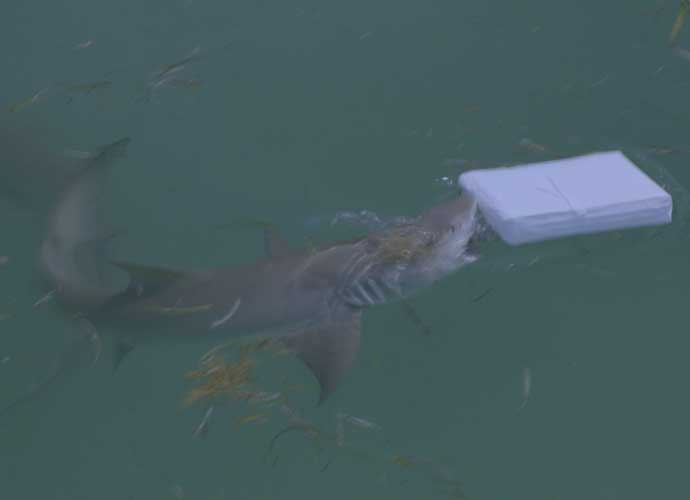New Documentary Looks At Impact Of Cocaine Discarded By Drug Traffickers On Florida Sharks
A new documentary on the Discovery Channel follows researchers as they investigate the potential impact of drugs dumped overboard around Florida.
Over the years, drug traffickers have left large amounts of cocaine in the sea to either be retrieved by others or to avoid arrest. These drugs often wash ashore due to ocean currents.
In June, the U.S. Coast Guard collected more than 14,100 pounds of cocaine in the Caribbean Sea and Atlantic Ocean, costing about $186 million.
Tom Hird, a marine biologist, and Tracy Fanara, an environmental scientist from the University of Florida, observed sharks along the Florida Keys to determine whether these drugs were changing marine life.
During a dive to observe shark behavior, a hammerhead, a species that typically stays away from humans, unsteadily swam toward the scientists.
In a study, the researchers placed packages with a similar appearance to cocaine bales next to “dummy” swans. The sharks notably swam toward the bales and bit into them instead of the swans.
In another experiment, the team developed shark bait made of highly concentrated fish powder. This would theoretically create a dopamine spike that would model the shark ingesting cocaine.
IN MEMORIAM 2022: 100 GREAT CELEBRITIES WHO DIED IN 2022
“We gave them what I think is the next best thing. [It] set [their] brains aflame. It was crazy,” Hird said.
In a final test, the researchers dropped fake cocaine bales from an airplane to mimic a real drug drop, causing multiple sharks to swim into the area.
Despite these experiments, Hird said that there were many other factors that could possibly explain the behavior and that the results don’t conclusively demonstrate that the sharks consume cocaine.
But Hird did say he hopes the documentary, which will air on July 26, will act as a precursor for more research into how pharmaceutical chemicals affect animals.
RELATED ARTICLES
Get the most-revealing celebrity conversations with the uInterview podcast!








Leave a comment